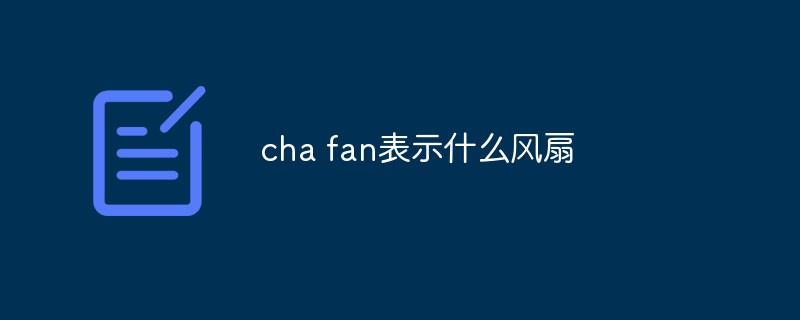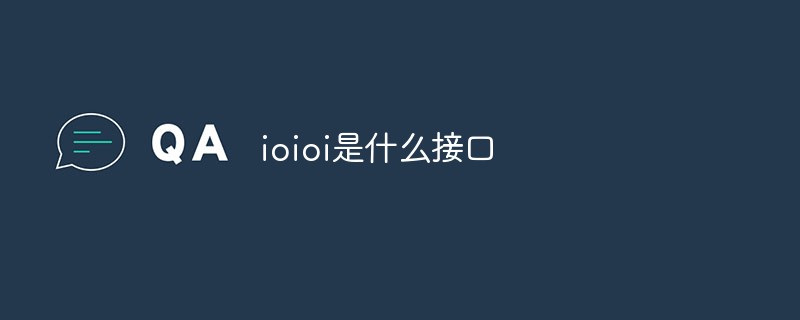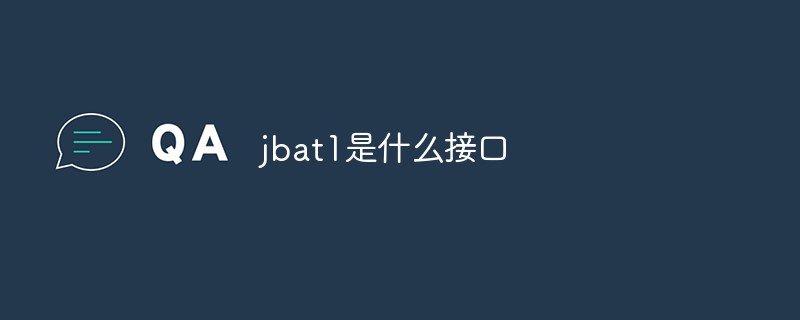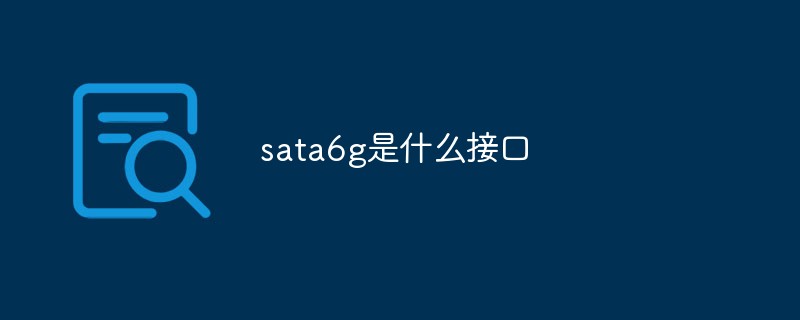Interfaces and abstract classes are used in design patterns for decoupling and extensibility. Interfaces define method signatures, abstract classes provide partial implementation, and subclasses must implement unimplemented methods. In the strategy pattern, the interface is used to define the algorithm, and the abstract class or concrete class provides the implementation, allowing dynamic switching of algorithms. In the observer pattern, interfaces are used to define observer behavior, and abstract or concrete classes are used to subscribe and publish notifications. In the adapter pattern, interfaces are used to adapt existing classes. Abstract classes or concrete classes can implement compatible interfaces, allowing interaction with original code.

The application of interfaces and abstract classes in design patterns in Java
In software design, interfaces and abstract classes are the implementation Key components for decoupling and scalability. They allow different modules to be developed and deployed independently while still maintaining compatibility.
Interface
- An interface defines a set of method signatures but does not provide an implementation for them.
- A class that implements an interface must implement all declared methods.
- Interfaces can have multiple implementations, allowing different behaviors to be switched at runtime.
Abstract class
- Abstract class provides partial implementation, and some of its methods are not implemented.
- Subclasses that extend an abstract class must implement all unimplemented methods, or declare themselves abstract.
- Abstract classes can only have one implementation, but can be accessed through polymorphism in their subclasses.
Application in Design Pattern
Interfaces and abstract classes play a vital role in design patterns, improving the flexibility of the code in the following ways , Reusability and testability:
Strategy pattern: Use interfaces to define a set of algorithms, and use abstract classes or concrete implementations to provide implementations. This allows algorithms to be switched dynamically as needed at runtime.
Observer pattern: Use interfaces to define the behavior of observers and subscribers. Abstract classes or concrete implementations can be used as subscription objects, while observers can register and unregister to receive updates.
Adapter pattern: Use interfaces to adapt existing classes to different interfaces. Abstract classes or concrete implementations can implement compatible interfaces, allowing them to interact with legacy code.
Practical case
Strategy mode:
interface SortingAlgorithm {
int[] sort(int[] arr);
}
abstract class AbstractSortingAlgorithm implements SortingAlgorithm {
public void swap(int[] arr, int i, int j) {
// 交换 arr 中索引为 i 和 j 的元素
}
}
class BubbleSort extends AbstractSortingAlgorithm {
@Override
public int[] sort(int[] arr) {
for (int i = 0; i < arr.length - 1; i++) {
for (int j = 0; j < arr.length - i - 1; j++) {
if (arr[j] > arr[j + 1]) {
swap(arr, j, j + 1);
}
}
}
return arr;
}
}
class QuickSort extends AbstractSortingAlgorithm {
@Override
public int[] sort(int[] arr) {
// 快排算法实现
}
}
// 使用
SortingAlgorithm algorithm = new BubbleSort();
int[] sortedArr = algorithm.sort(arr);In this example, SortingAlgorithm interface definition provides sorting behavior, while BubbleSort and QuickSort provide specific implementations. Since they both implement the same interface, they can easily be swapped at runtime as needed.
Observer Pattern:
interface Observer {
void update(Observable observable);
}
abstract class Observable {
private List<Observer> observers = new ArrayList<>();
public void addObserver(Observer observer) {
observers.add(observer);
}
public void removeObserver(Observer observer) {
observers.remove(observer);
}
protected void notifyObservers() {
for (Observer observer : observers) {
observer.update(this);
}
}
}
class ConcreteObservable extends Observable {
private int state;
public void setState(int state) {
this.state = state;
notifyObservers();
}
}
class ObserverA implements Observer {
@Override
public void update(Observable observable) {
// 收到通知并根据变化的 state 做出反应
}
}
// 使用
ConcreteObservable observable = new ConcreteObservable();
ObserverA observerA = new ObserverA();
observable.addObserver(observerA);
observable.setState(10); // 通知观察者 state 发生变化In this example, the Observer interface defines the behavior of the observer, and Observable Abstract class provides a mechanism for subscribing and publishing notifications. ConcreteObservable and ObserverA are concrete implementations, where ConcreteObservable manages a list of observers and notifies them of state changes, and ObserverA can execute based on those changes operate.
The above is the detailed content of Application of interfaces and abstract classes in design patterns in Java. For more information, please follow other related articles on the PHP Chinese website!
 主板aafp是什么接口Aug 29, 2022 am 10:50 AM
主板aafp是什么接口Aug 29, 2022 am 10:50 AM主板上的aafp是音频接口;该接口的功能是启用前面板的“3.5mm”插孔,起到传输音频的作用,aafp跳线基本上由两个部分组成,一部分是固定在主板、硬盘等设备上的,由两根或两根以上金属跳针组成,另一部分是跳线帽,是一个可以活动的组件,外层是绝缘塑料,内层是导电材料,可以插在跳线针上。
 cha fan表示什么风扇Sep 15, 2022 pm 03:09 PM
cha fan表示什么风扇Sep 15, 2022 pm 03:09 PM“cha fan”表示的是机箱风扇;“cha”是“chassis”的缩写,是机箱的意思,“cha fan”接口是主板上的风扇供电接口,用于连接主板与机箱风扇,可以配合温度传感器反馈的信息进行智能的转速调节、控制噪音。
 ioioi是什么接口Aug 31, 2022 pm 04:50 PM
ioioi是什么接口Aug 31, 2022 pm 04:50 PMioioi是指COM接口,即串行通讯端口,简称串口,是采用串行通信方式的扩展接口。COM接口是指数据一位一位地顺序传送;其特点是通信线路简单,只要一对传输线就可以实现双向通信(可以直接利用电话线作为传输线),从而大大降低了成本,特别适用于远距离通信,但传送速度较慢。
 link/act是什么接口Feb 23, 2023 pm 04:14 PM
link/act是什么接口Feb 23, 2023 pm 04:14 PMlink/act是物理数据接口;交换机上的link/act指示灯表示线路是否连接或者活动的状态;通常Link/ACT指示灯用来观察线路是否激活或者通畅;一般情况下,若是线路畅通,则指示灯长亮,若是有数据传送时,则指示灯闪烁。
 jbat1是什么接口Jun 23, 2021 pm 01:38 PM
jbat1是什么接口Jun 23, 2021 pm 01:38 PMjbat1是主板电2113池放电跳线接口,对于现在市面上常见的主板来说,它们都设计有CMOS的放电跳线,让用户在操作时更加便捷,它也因此成为了CMOS最常见的放电方法。
 sata6g是什么接口Sep 14, 2022 am 11:46 AM
sata6g是什么接口Sep 14, 2022 am 11:46 AMsata6g是数据传输速度为“6G/s”的sata接口;sata即“Serial ATA”,也就是串行ATA,是主板接口的名称,现在的硬盘和光驱都使用sata接口与主板相连,这个接口的规格目前已经发展到第三代sata3接口。
 dc接口是什么意思Aug 24, 2022 am 10:47 AM
dc接口是什么意思Aug 24, 2022 am 10:47 AMdc接口是一种为转变输入电压后有效输出固定电压接口的意思;dc接口是由横向插口、纵向插口、绝缘基座、叉形接触弹片、定向键槽组成,两只叉型接触弹片定位在基座中心部位,成纵横向排列互不相连,应用于手机、MP3、数码相机、便携式媒体播放器等产品中。
 pump fan是什么接口Jun 25, 2021 pm 02:55 PM
pump fan是什么接口Jun 25, 2021 pm 02:55 PMpump fan是散热风扇接口。主板上的风扇接口有cpu fun、sys fun、pump fun,对于一般普通用户来说区别不大,一般接哪个都行,而pump fun上的电流更大一点,用于接功率大一点的水冷风扇头。


Hot AI Tools

Undresser.AI Undress
AI-powered app for creating realistic nude photos

AI Clothes Remover
Online AI tool for removing clothes from photos.

Undress AI Tool
Undress images for free

Clothoff.io
AI clothes remover

AI Hentai Generator
Generate AI Hentai for free.

Hot Article

Hot Tools

EditPlus Chinese cracked version
Small size, syntax highlighting, does not support code prompt function

ZendStudio 13.5.1 Mac
Powerful PHP integrated development environment

Safe Exam Browser
Safe Exam Browser is a secure browser environment for taking online exams securely. This software turns any computer into a secure workstation. It controls access to any utility and prevents students from using unauthorized resources.

Dreamweaver Mac version
Visual web development tools

VSCode Windows 64-bit Download
A free and powerful IDE editor launched by Microsoft






